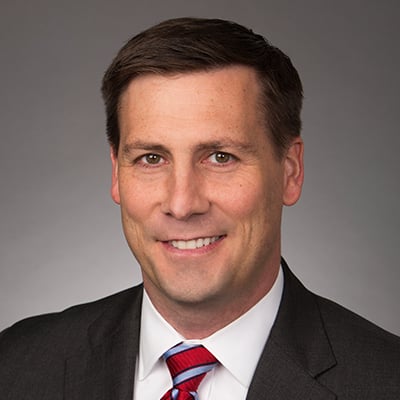Third Circuit Decision to Overturn Wilmington Trust Officials Conviction Creates Steep Path
Kirkland partner George Hicks discusses his work in helping to overturn criminal convictions of four former Wilmington Trust executives
In a first impression decision overturning criminal convictions of four former Wilmington Trust executives this week, a panel of judges on the U.S. Court of Appeals for the Third Circuit ruled that prosecutors’ path to proving a statement false is a steep one.
The panel found the federal government’s regulations for reporting past-due loans were too ambiguous for a single interpretation to prove the way the executives falsely reported the loans a decade ago. The court’s conclusions could sweep into other areas of the law and a number of other regulated industries.
“It really did a very thorough job in trying to clarify what has really been an unclear area of the law, and whenever there is a lack of clarity in the law, it creates opportunities for prosecutors to take advantage of that,” said George Hicks, a Kirkland & Ellis attorney who represented William North, Wilmington Trust’s former chief credit officer, of the opinion. “This decision has been extremely helpful in bringing clarity back to the law and doing so in a way that respects due process and removes a tool for bringing prosecutions that really shouldn’t have been brought in the first place.”
In the 39-page decision, Judge Cheryl Ann Krause, who was joined by fellow Third Circuit judges Peter J. Phipps and Morton I. Greenberg, wrote that in order to get a false statement conviction, the federal government has to prove the statement was false under any reasonable interpretation of a requirement, rather than under just the one interpretation determined to be reasonable by the government.
“In a matter of first impression, the Court held that the government was required to establish that the defendants’ statements were false under any ‘objectively reasonable’ interpretation of the applicable reporting instructions—even in a circumstance where a defendant never believed in that interpretation and intended to lie to the regulators all along,” U.S. Attorney David C. Weiss said. “Needless to say, I am disappointed with this result.”
In determining the government hadn’t given sufficient evidence to support their charges, 15 false statement counts were reversed. The two remaining charges were remanded for retrial, though Hicks said Thursday the Department of Justice hasn’t indicated whether or not it plans to retry the remaining counts.
The reporting alleged to count as false statements stemmed from the bank’s policy of not classifying mature loans with unpaid principal balances as past due as long as interest payments were current and the loan renewal process was in progress. Wilmington Trust was required to report past-due loans to the SEC, Federal Reserve and Office of Thrift Supervision, though the opinion states none of those agencies defined a past-due loan and all used slightly different language when explaining the requirements for reporting.
Hicks said in recent years, the federal false statement statute has increasingly been used by prosecutors in a variety of criminal proceedings, and Tuesday’s decision set parameters for false statement charges. In the decision, Krause cited cases in five other circuits in which courts came to similar conclusions about the burden of proof for false statements.
“The biggest takeaway is that prosecutors in federal cases shouldn’t try to skirt their obligation to prove all of the elements of the crimes that they charge,” said Kenneth Breen of Paul Hastings, who represented former Chief Financial Officer David Gibson. “What they did here is they tried to take the intent element and combine it with falsity in a way where, with circular logic, they tried to use each to prove the other.”
Breen said the opinion is significant largely because it has the potential to be cited both outside the Third Circuit and in civil cases, with the standard for proving a false statement now set for circumstances involving government-established regulations.
That could mean the decision might apply to cases in any number of regulated industries, including civil cases such as securities suits commonly seen in Delaware in which executives are accused of making false statements in violation of SEC rules.
“The panel talks about the civil application of fair notice requirements, which I think could be a place where the panel’s inviting this to be applied in a broader sense, particularly with regard to statutory ambiguity. I think that that’s something that is going to become the law,” Breen said. “The Third Circuit had FTC v. Wyndham, which is cited, but the opinion really goes beyond that and really frames the issue in terms of a backdrop of unpredictability in how agencies must be clear in communicating their policies before a private party can be sanctioned.”
Department of Justice officials declined to comment further on the precedent set by the court’s decision.

